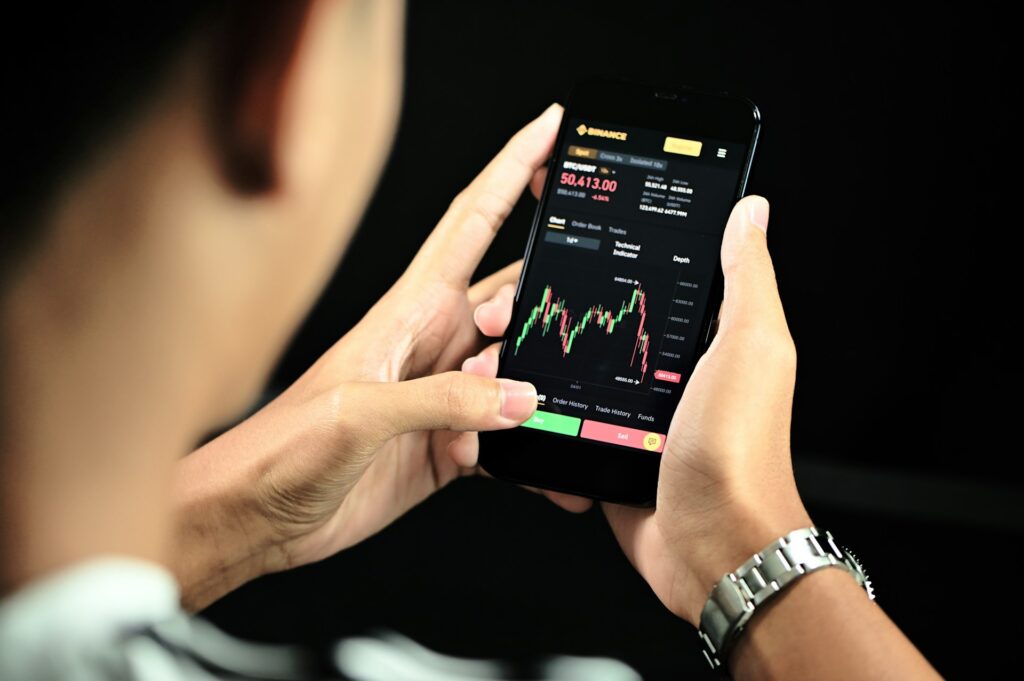The ever-shifting tides of the foreign exchange market, often referred to as “forex,” present a complex landscape not just for analyzing economic factors, but also for navigating the human mind. While technical indicators and economic data play a crucial role, the psychology of forex trading often emerges as the silent battleground where success and failure are ultimately decided. This article delves into the intricate interplay between emotions, cognitive biases, and rational decision-making, unveiling the hidden forces that influence every trade and offering insights into how to cultivate a resilient mental state for navigating the dynamic world of forex.
Definition of Forex Trading
Forex trading, short for foreign exchange trading, involves the buying and selling of currencies in the global financial market. It’s a decentralized market where currencies are traded over-the-counter, meaning transactions occur directly between parties or through electronic trading platforms. The primary objective of forex trading is to profit from fluctuations in currency exchange rates.
Traders speculate on the price movements of currency pairs, such as EUR/USD or GBP/JPY, aiming to buy low and sell high or sell high and buy low. This dynamic market operates 24 hours a day, five days a week, allowing traders from around the world to participate at any time. With its high liquidity, accessibility, and potential for significant returns, forex trading attracts a diverse range of participants, including individual retail traders, financial institutions, hedge funds, and multinational corporations.
Understanding the Human Psychology in Forex Trading
Emotions play a pivotal role in the world of forex trading, influencing decisions and outcomes. Understanding and managing these emotions are critical for traders seeking success. Here’s a closer look at the key emotions involved:
- Fear: This emotion can lead to hesitation and premature exits from trades as traders fear potential losses.
- Greed: The desire for larger profits may result in overtrading or holding onto losing positions longer than advisable.
- Overconfidence: Traders may overestimate their abilities, underestimating risks and engaging in risky behavior.
Common Psychological Biases in Trading
Psychological biases can significantly impact trading decisions, often leading to irrational behavior. Here are some prevalent biases that traders should be aware of:
- Confirmation Bias: Traders tend to seek information that confirms their existing beliefs, potentially ignoring contradictory evidence.
- Loss Aversion: This bias involves a preference for avoiding losses over acquiring equivalent gains, leading to holding onto losing positions.
- Availability Bias: Decisions are influenced by readily available information or recent experiences, without considering all relevant factors.
Understanding these emotional and cognitive aspects is essential for traders looking to navigate the forex market successfully. Developing strategies to manage emotions and mitigate biases can significantly improve overall trading performance.
The Role of Emotions in Forex Trading
Emotions wield immense influence over traders’ decision-making processes in the forex market, often dictating outcomes. Here’s a deeper exploration of the significant emotions at play:
Fear and Greed
Fear and greed stand out as two dominant emotions in forex trading, shaping traders’ behaviors and market dynamics.
- Fear: When fear grips a trader, it can lead to hesitation or even paralysis, preventing them from executing trades or causing premature exits. Fear of potential losses can overshadow rational decision-making, prompting traders to abandon positions too soon or avoid entering trades altogether.
- Greed: On the flip side, greed can drive traders to pursue excessive profits, leading to overtrading or holding onto winning positions for too long. This insatiable desire for more can cloud judgment, causing traders to overlook warning signs or deviate from their trading strategies.
Impulsivity
Acting on impulse without proper analysis or consideration of risk can result in impulsive trades that are based more on emotion than logic. Impulsive traders may succumb to FOMO (fear of missing out) or succumb to the pressure of the moment, making decisions they later regret.
Understanding the role of these emotions is crucial for traders looking to navigate the forex market successfully. By acknowledging and managing these emotions effectively, traders can enhance their decision-making processes and improve their overall trading performance.
Common Psychological Biases in Forex Trading
| Psychological Bias | Description | Impact on Trading |
| Confirmation Bias | Seeking out information that confirms existing beliefs | May lead to ignoring contradictory evidence |
| Loss Aversion | Preference for avoiding losses over acquiring gains | Can result in holding onto losing positions for too long |
| Availability Bias | Decisions influenced by readily available information | May overlook other relevant factors in decision-making process |
Psychological biases are inherent tendencies in human decision-making that can significantly affect trading outcomes. Here’s a closer look at some common biases observed in forex trading:
- Confirmation Bias: Traders tend to seek information that aligns with their existing beliefs or biases, leading them to ignore contradictory evidence. This bias can result in making decisions based on incomplete or biased information, potentially leading to losses.
- Loss Aversion: Traders often exhibit a preference for avoiding losses over acquiring equivalent gains. This aversion to losses can lead to holding onto losing positions for extended periods, in the hope that the market will reverse in their favor. However, this reluctance to accept losses can result in further losses if the market continues to move against them.
- Availability Bias: Traders may make decisions based on readily available information or recent experiences, without considering all relevant factors. This bias can lead to overlooking crucial information or failing to conduct thorough analysis, ultimately impacting trading decisions and outcomes.
Understanding these biases is essential for traders looking to mitigate their impact and make more informed and rational trading decisions. By recognizing and addressing these biases, traders can improve their overall performance and achieve greater success in the forex market.
Strategies for Overcoming Psychological Challenges
Effective emotion management is crucial for maintaining composure and making rational decisions in forex trading. Traders can employ various techniques to manage emotions, such as deep breathing exercises, mindfulness meditation, and visualization techniques. By cultivating self-awareness and practicing these techniques regularly, traders can better regulate their emotions and avoid impulsive or irrational behavior.
Developing a Trading Plan
Creating a well-defined trading plan is essential for overcoming psychological challenges in forex trading. A trading plan outlines specific entry and exit criteria, risk management strategies, and guidelines for trade execution. By following a structured plan, traders can reduce uncertainty and emotional responses to market fluctuations. Additionally, reviewing and adjusting the trading plan regularly can help traders adapt to changing market conditions and maintain discipline in their trading approach.

